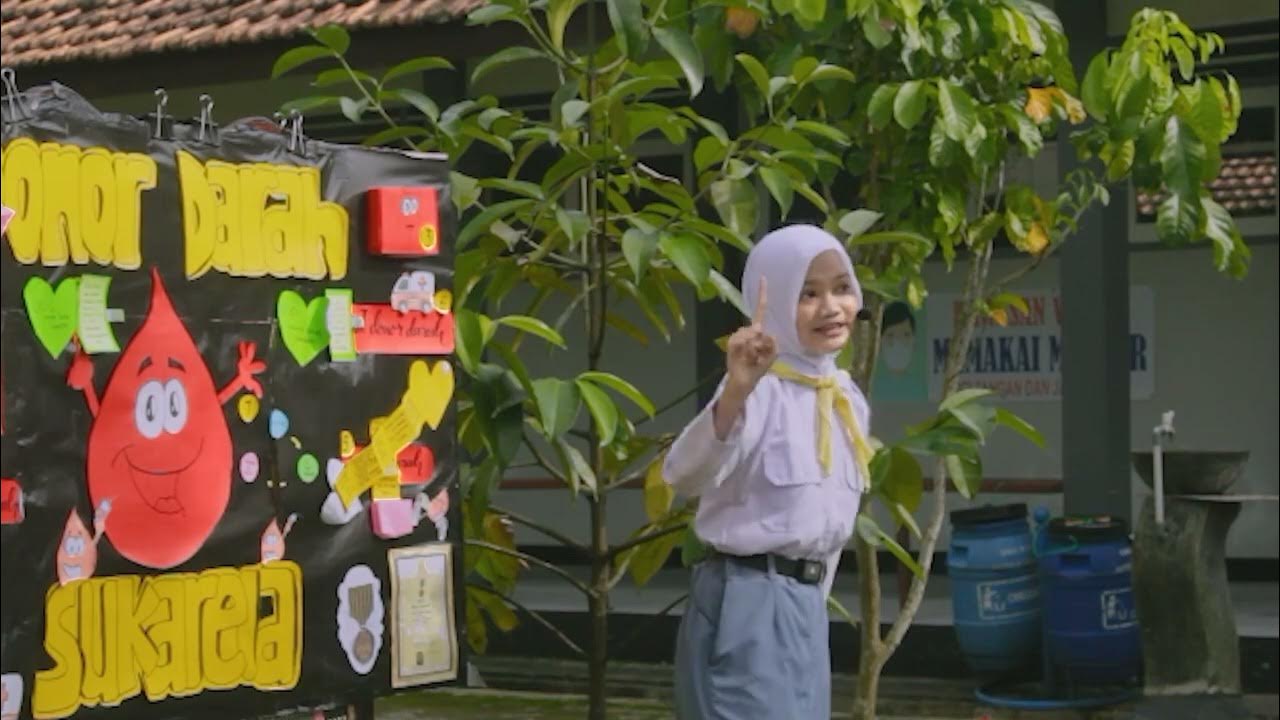MATERI DONOR DARAH SUKARELA (DORAS)
Summary
TLDRThis video presentation by Amelia Pratiwi from PMR Wira SMA Negeri 1 Bintan covers the essential aspects of voluntary blood donation. It explains what blood donation is, the functions of blood, the different blood types, and the two categories of blood donors. It highlights the health requirements and benefits of donating blood, including inner satisfaction, improved health, and community engagement. The video also outlines the procedure for blood transfusion and the role of PMR Wira in promoting blood donation, especially during the pandemic. The presentation concludes by emphasizing the importance of donating blood to save lives.
Takeaways
- 😀 Blood donation involves voluntarily giving blood to help save lives through blood transfusions.
- 😀 Blood plays vital roles in transporting oxygen, removing carbon dioxide, and replacing damaged cells in the body.
- 😀 There are four main blood types: A, B, AB, and O, with each type having rhesus positive and negative variations.
- 😀 Blood donors are categorized into voluntary donors (those who donate without knowing who receives the blood) and replacement donors (those who donate for a specific recipient).
- 😀 The minimum requirements for blood donation include being 18-60 years old, weighing at least 45 kg, and being in good health as confirmed by a doctor's checkup.
- 😀 Blood donors should have a hemoglobin level of at least 12.5 g/dL, and normal blood pressure (systolic: 100-180 mmHg, diastolic: 50-100 mmHg).
- 😀 Women who are menstruating, pregnant, or breastfeeding are not eligible to donate blood.
- 😀 Donating blood has health benefits, including providing satisfaction from saving lives, helping monitor personal health, and promoting the production of new blood.
- 😀 The procedure for donating blood involves health checks, blood collection by experienced staff, and receiving a donor membership card as proof of donation.
- 😀 PMR Wira plays a key role in promoting blood donation by educating the community, especially during pandemics, and encouraging volunteerism and social responsibility.
Q & A
What is blood donation?
-Blood donation is the activity of donating blood to be used for blood transfusions, where blood from a healthy donor is transferred to someone in need.
What are the primary functions of blood?
-Blood serves several functions: it transports oxygen from the lungs to body cells, removes carbon dioxide from the body, and helps replace damaged cells. It is also crucial in sustaining life by maintaining cellular health.
How many blood types exist, and what are they?
-There are four main blood types: A, B, AB, and O. Each blood type is further divided into Rh-positive or Rh-negative categories.
What is the difference between a voluntary blood donor and a replacement blood donor?
-A voluntary blood donor donates blood without knowing who will receive it, while a replacement blood donor is asked to donate blood for a specific person they are aware of.
What are the requirements for someone to donate blood?
-Donors must be between 18-60 years old, weigh at least 45 kg, have a hemoglobin level of at least 12.5 grams per deciliter, and meet specific health conditions. They should also not have high-risk diseases like HIV, AIDS, or hepatitis.
What are some of the benefits of donating blood?
-Donating blood can provide inner satisfaction knowing that it can save lives, help monitor your health, and even contribute to making your body healthier by producing new blood. It also allows you to join organizations like PMI and build relationships with other volunteers.
What is the procedure for blood donation?
-The procedure includes filling out a donor form, undergoing a health check, and then having the blood collected by a trained assistant. Afterward, the donor receives a membership card confirming their donation.
How often can someone donate blood?
-A person can donate blood approximately every two and a half to three months, allowing time for the body to replenish its blood supply.
How does PMR Wira contribute to blood donation efforts during a pandemic?
-PMR Wira helps by providing education, socialization, and training about blood donation, peer education, and raising awareness about public health, including issues like HIV-AIDS and environmental care.
Why is it important to donate blood regularly?
-Regular blood donation helps ensure that there is always a ready supply of blood for those in need, particularly in emergencies or situations where blood loss is critical.
Outlines

This section is available to paid users only. Please upgrade to access this part.
Upgrade NowMindmap

This section is available to paid users only. Please upgrade to access this part.
Upgrade NowKeywords

This section is available to paid users only. Please upgrade to access this part.
Upgrade NowHighlights

This section is available to paid users only. Please upgrade to access this part.
Upgrade NowTranscripts

This section is available to paid users only. Please upgrade to access this part.
Upgrade NowBrowse More Related Video

DESINTA DWI - PMR WIRA - DONOR DARAH

Sosialisasi Donor Darah Sukarela SMA NEGERI 1 JATILAWANG #DDSJumbaraXXVIII

Lomba Video Pembelajaran Pertolongan Pertama PMR Wira SMA Negeri 1 Banyumas

[EDUKASI PP] Simulasi Pertolongan Pertama - SMAN 4 PURWOKERTO #FAIUNSOED2023

Mengenal Lebih Dekat Seputar PMR di SMA NEGERI 1 LUBUK PAKAM || [tugas bahasa indonesia] kelas XI-A

Syafira Materi Kepemimpinan Seleksi Jumbara Nasional IX
5.0 / 5 (0 votes)